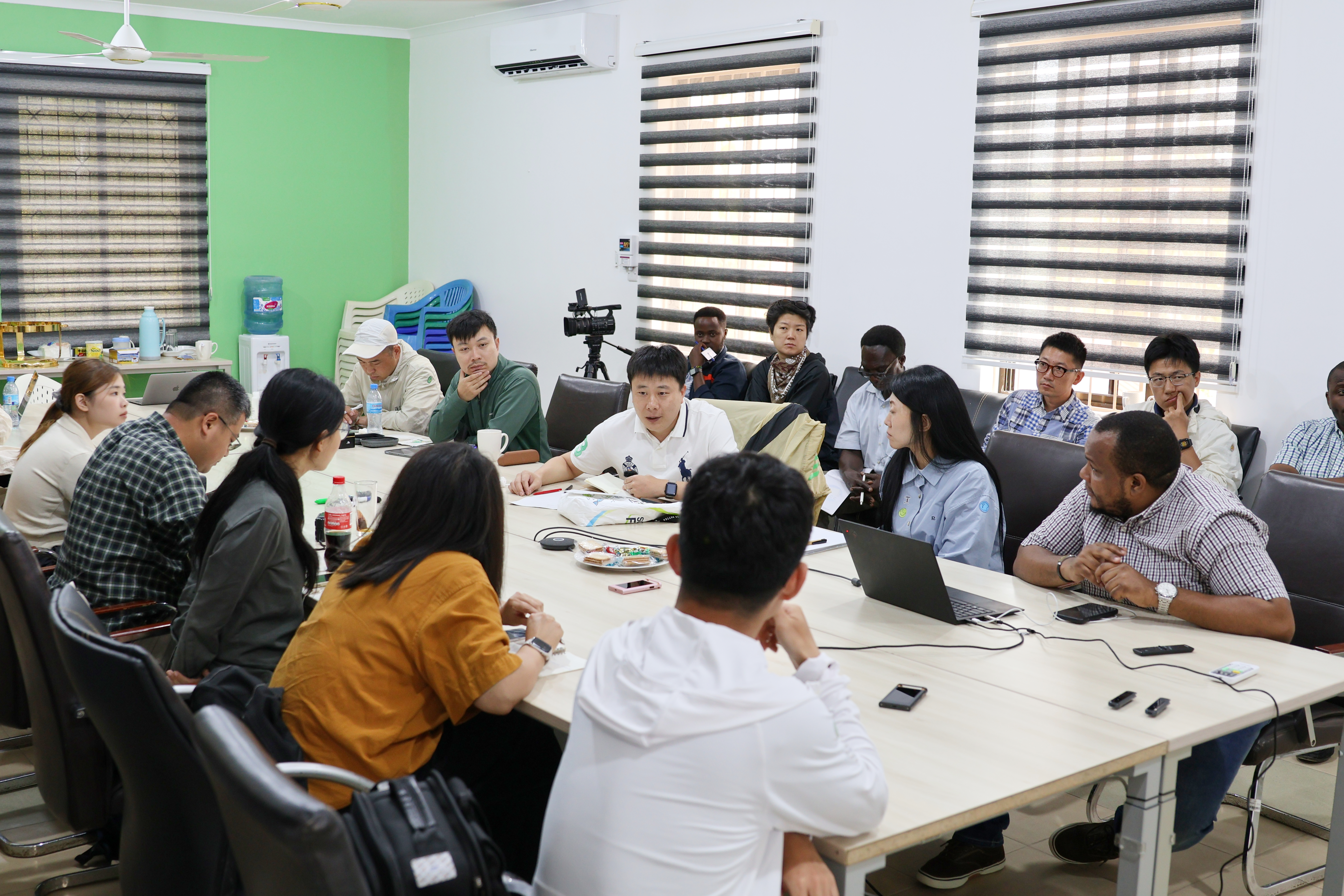
VISIT: Chinese journalists learn about Ifakara malaria control projects

Today, the Ifakara Health Institute hosted a group of journalists from various media outlets in China and Tanzania in its Dar es Salaam Office. The aim was to learn about Ifakara and its projects as part of their Chinese & African Media Joint Reporting Trip to Tanzania organized by Peking University with support from the Bill & Melinda Gates Foundation, mainly focused on areas of health and development.
China-UK-Tanzania Malaria Elimination Project
Ifakara Principal Research Scientist Dr Prosper Chaki introduced the group to the China-UK-Tanzania Pilot Project on Malaria Control implemented by Ifakara between 2015 to 2018, supported by the China-UK Global Health Support Programme and funded by the UK Department for International Development (DFID), aimed to reduce malaria burden in Tanzania by leveraging China's successful malaria control strategies.
Dr Chaki, the Project Leader shared insights virtually on the project's successes, challenges. This project cut malaria cases by 81% within the study sites in Rufiji, Tanzania in its first phase through tailored local interventions, technical support from Chinese experts, and building local capacity. It involved baseline surveys, targeted community testing and treatment, and close cooperation between Chinese and Tanzanian health officials.
Building on this success, Phase 2 of the project, which took place between 2019 and 2021, also had a significant impact. The achievements of Phases 1 and 2 have raised demand for Phase 3, with community members in the study sites eager to make the project sustainable and long-term.
Global collaborations and local policy
In discussing the influence of global collaborations on local policy, Dr Chaki highlighted the adaption of China's models to the local context, showing that international health strategies can be effectively implemented in Africa, offering valuable lessons for future collaborations.
Dr Chaki also touched on the critical role international organizations play in shaping local health policies and practices. He noted that such collaborations provide opportunities for sharing knowledge and resources, which are essential for tackling public health challenges like malaria.
He emphasized that while these tools are valuable for Tanzania, they must be contextualized and localized to be effective, considering the varying impacts of malaria on different communities.
On how to improve china-TZ collaboration
In closing, Dr Chaki, expressed appreciation for the opportunity of working with the Chinese partners, and emphasized the importance of respect and understanding of different cultures in any successful multi-country collaboration towards global health.
The visit by the Chinese delegation highlights the importance of international partnerships in advancing global health goals and highlights Ifakara's commitment to innovative and effective malaria control strategies.
